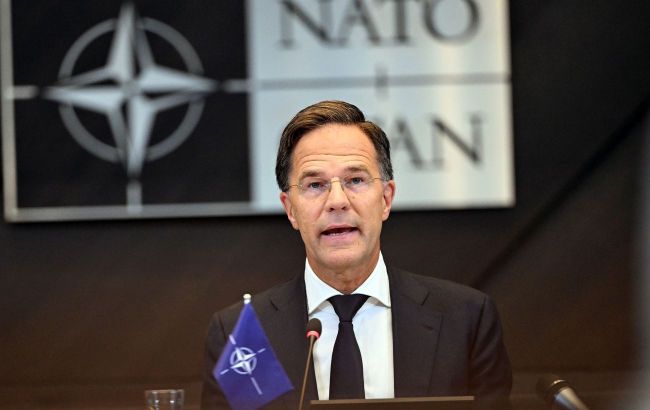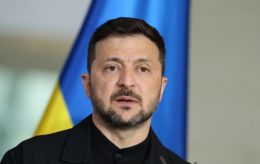Russia cannot intimidate NATO with threats - NATO Secretary General
 Photo: NATO Secretary General Mark Rutte (Getty Images)
Photo: NATO Secretary General Mark Rutte (Getty Images)
NATO will not be intimidated by Russian threats. The military alliance will continue to provide steadfast support to Kyiv, according to NATO Secretary General Mark Rutte.
“The message (to Russian President Vladimir Putin - ed.) is that we will continue, that we will do what's necessary to make sure that he will not get his way, that Ukraine will prevail,” Rutte said.
The agency specifies that the secretary general made this statement on Monday while speaking at Clay Barracks. This American base hosts the headquarters of the new mission, titled NATO Support and Training for Ukraine (NSATU). This mission will gradually take over the coordination of Western military aid to Kyiv.
This move is widely seen as an effort to safeguard the aid mechanism from NATO critic Donald Trump's potential return to the White House. However, diplomats acknowledge that NATO’s takeover of military aid coordination could have a limited impact, given that the US remains the dominant force in the Alliance and provides most of Ukraine’s weaponry.
Speaking in one of the 12 green tents where NSATU personnel will be housed, Rutte addressed allied troops from over a dozen nations already working on the mission. They will later move to a nearby hangar and be joined by Ukrainian forces.
NSATU’s total strength is expected to reach around 700 personnel, including military staff stationed at NATO’s SHAPE headquarters in Belgium and logistics hubs in Poland and Romania.
The Wiesbaden base also hosts the US unit responsible for long-range missiles, which Washington plans to temporarily station in Germany starting in 2026 to counter the perceived threat from Russian missiles deployed near Kaliningrad, roughly 500 kilometers from Berlin.
During his first visit to Germany as NATO chief, Rutte welcomed this move, which Russia condemned as a provocation and sparked heated debate within Chancellor Olaf Scholz's Social-Democrat Party.
He also stressed that NATO must maintain the full range of capabilities needed to deter the Russian threat.
“We are NATO. We are a defensive alliance, and we are not offensive. We are not interested in capturing any part of any other country outside NATO territory. As this democratic alliance, the strongest military alliance in world history, serving 1 billion people, we stand ready to confront any threat. We will never get intimidated by our adversaries,” he declared.
NATO transformation
This year alone, a total of 14 Eastern NATO member states have increased their defense spending to $70 billion.
Additionally, Politico reported that the North Atlantic Alliance has begun discussing a new strategy regarding Russia. Notably, NATO defense ministers will address this issue for the first time later this week.
Earlier, RBC-Ukraine reported that Finnish President Alexander Stubb announced the formation of NATO 3.0. According to him, in the current geopolitical environment, the Alliance is returning to its original mission for which it was created.

